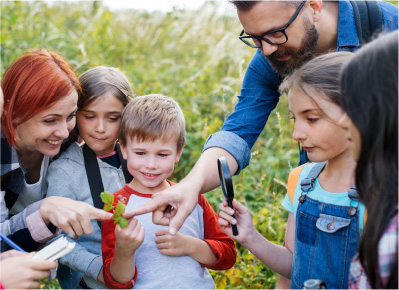International Youth Day has been celebrated every August 12 since 1999. During the World Conference of Ministers Responsible for Youth, the UN recommended that public activities should be organized to support Youth Day and promote better awareness of the World Programme of Action for Youth. This program provides a framework to improve the situation of young people around the world. The guidelines include fifteen areas of action to leverage the full potential of youth: education, employment, hunger and poverty, health, environment, substance abuse, juvenile justice, leisure-time activities, girls and young women, and the full and effective participation of youth in the life of society and decision-making, as well as globalization, information and communication technologies, HIV/AIDS, armed conflict, and intergenerational issues.
Intergenerational Solidarity Is The Key To Create Bridges Between Generations
Every year, the International Youth Day celebration has a different focus. The annual topics have varied greatly, from youth civic engagement, young building peace, transforming education, and engagement in global action to this year’s topic: intergenerational solidarity. Intergenerational solidarity is the sentiment that we need to acknowledge and amplify the importance of youth participation in current affairs.
Solidarity is key to reaching successful and equitable intergenerational relations to make sure no one is left behind. However, what is intergenerational solidarity? The best way to understand it is to define it as shared expectations and obligations regarding the aging of individuals and the succession of younger generations. It is not a secret that every generation grows up at different points in time, surrounded by particular socio-political events and concerns that changed their vision of the future. However, as a society, we must create bridges between all generations in order, to gain the wisdom from the oldest ones and the energy and idealism of the youngest ones.
Youth Day And The Fight Against Ageism To Transform Their Future
One of the main reasons to discuss intergenerational solidarity is to combat ageism. Ageism is defined as prejudice or discrimination against a particular age group, especially the young or old, in favor of another. It’s a form of discrimination that can be seen in different areas of life like the workplace, housing, and health care. For example, ageism for young people may make it more difficult to find a job, get a fair salary, or even get promoted based on their age. In addition, for older people, ageism is associated with social isolation, financial insecurity, and the stereotype of poorer physical and mental health.
However, there is no one-size-fits-all solution to achieve intergenerational solidarity, as each context is unique. Some general principles that can help create the environment for effective partnerships between generations include:
- Understanding different perspectives and needs
- Sharing power and decision-making
- Creating safe and inclusive spaces
- Investing in communication and dialogue
- Recognizing one another’s rights and responsibilities
Believe in Me Is Helping Children To Reach Their Full Potential
Believe in Me’s vision is to help every kid develop the self-confidence they need to succeed. By granting programs that help kids in our community, the foundation can fulfill our mission and our five pillars of care: education, enrichment, transitional living, foster care and adoption, and wrap-around services. In addition, these pillars support the framework design for the World Programme of Action for Youth, in fields like education, hunger and poverty, health, substance abuse, leisure time activities, and girls and young women.
Change only happens when we stand up together, that’s why we appreciate the amazing charities we support and the programs that are changing the lives of thousands of children in our community. In addition, none of these grants will be possible without the support of our donors and sponsors of our events. Thank you for believing in this new generation of children. And don’t forget, today’s youth are tomorrow’s leaders, and they need your support.






